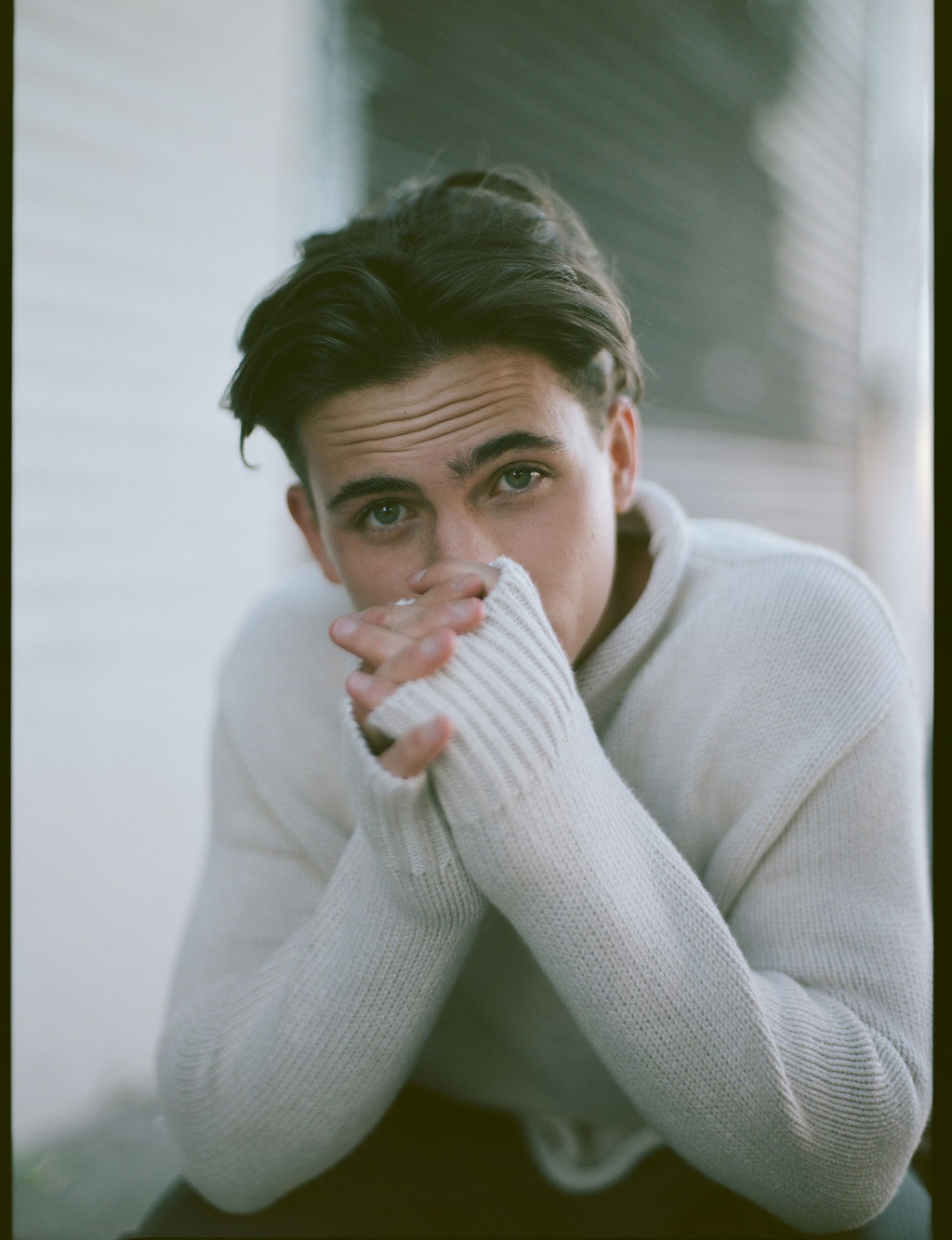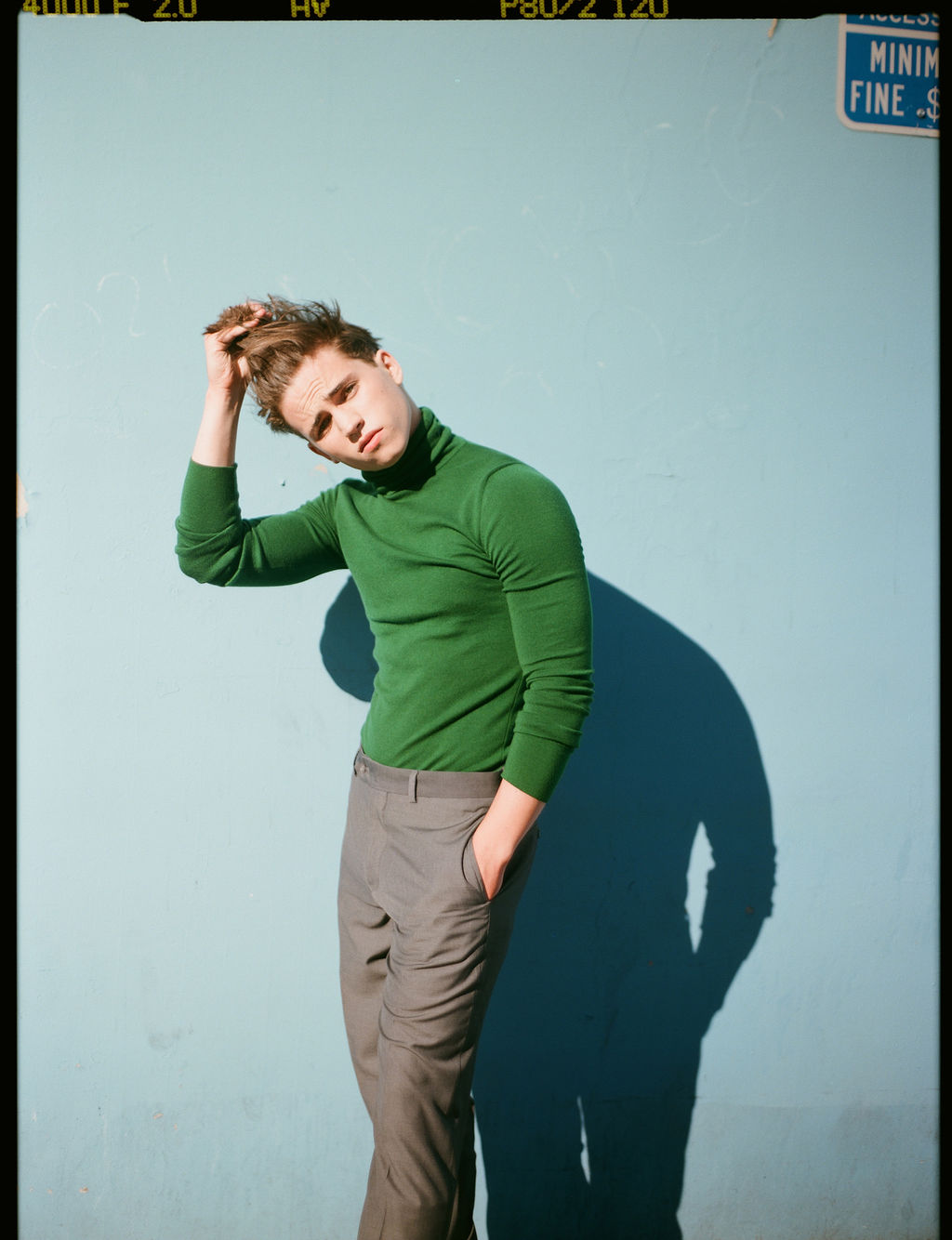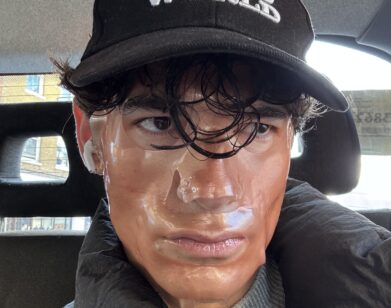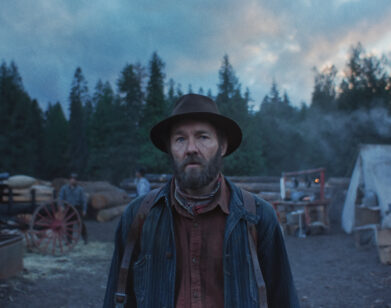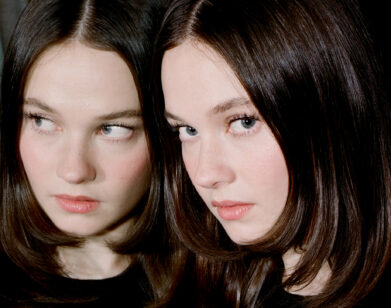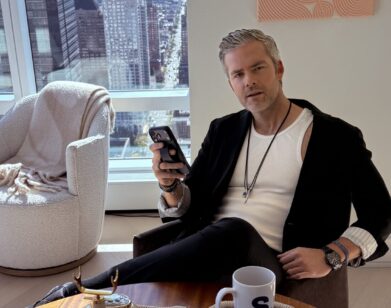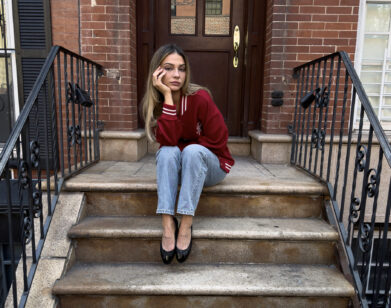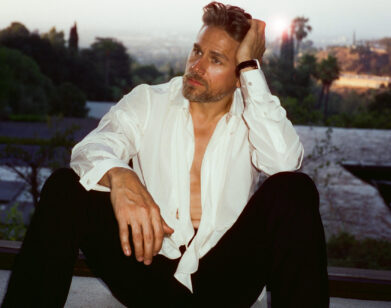wax on, wax off
Tanner Buchanan and Ralph Macchio on Cobra Kai and the Netflix Effect
Everything old eventually becomes new again, especially in Hollywood. Enter Cobra Kai, an unexpected sequel-of-sorts to the classic The Karate Kid, which followed the fish-out-of-water Daniel LaRusso as he learns martial arts from his downstairs neighbor Mr. Miyagi (the late Pat Morita), and uses his newfound skills to beat the bully and get the girl. (The movie generated two sequels and two reboots, but it’s the 1984 original that still lasts.) Now, about that bully. His name was Johnny Lawrence, and as played by real-life martial artist William Zabka, he was your typical SoCal jerk: blond, tanned, full of himself, and meant to be forgotten by the time the end credits rolled. And for a long time, he was. Then, in 2018, it was announced that the still-nascent streaming service YouTube Red would be reviving the Karate Kid mythos in the form of Cobra Kai, a new half-hour series told from the perspective of Johnny Lawrence, now a down-and-out handyman with a drinking problem and an estranged son. In an attempt to jump-kick his life, Lawrence restarts the Cobra Kai dojo, which was the bane of Daniel LaRusso’s existence in the original film. The series also brought back Ralph Macchio, who reprises his role as a grown-up Daniel LaRusso, now a car salesman who uses his background as karate champion to “kick the competition.” And while the show reignites the rivalry between LaRusso and Lawrence, it’s raison d’être is the new generation of pupils who the two old-heads take under their respective wings. One of them is Robby Keene, the son of Johnny Lawrence who becomes Daniel LaRusso’s student, much to his father’s opposition. The role is played by relative newcomer Tanner Buchanan, who used his background in dance to master the show’s rigorous fight choreography.
Since debuting in 2018, Cobra Kai earned itself a cult following, but like so many shows before it, has exploded in popularity since making its way to Netflix earlier this summer. Buchanan and Macchio recently reconnected to discuss the show’s newfound popularity bringing wax-on-wax-off to a new generation. – ERNESTO MACIAS
———
MACCHIO: Here’s a question I have never asked you: When you first heard of the audition for Cobra Kai and you got the call, how much karate knowledge did you have? And how much did you know about the original movie?
BUCHANAN: I knew of Karate Kid and I also had seen it when I was five or six years old. I don’t think I’ve talked about this much, but my mom introduced it to me because in the ’80s because she was actually a black belt in karate.
MACCHIO: That’s awesome.
BUCHANAN: She was super big on the movie. I can remember it vividly. I didn’t want to watch it again before the audition because I wanted to make it my own. It’s funny, because I remember I was in the middle of watching Karate Kid 2, and then I got a call from New York, so I paused the movie to pick it up and it was you. You called me saying “Hey, congratulations, I’m really excited to work with you.”
MACCHIO: I love that. I remember calling you. I was so stoked. The casting of the younger generation of the show has been a joy for me. We were all so excited that you were the guy to play Robby. What do you like most about playing Robby Keene?
BUCHANAN: I do notice that Robby gets to interact with almost every single character within the series. That’s what’s the most exciting, because I don’t think a lot of the other characters get that opportunity.
MACCHIO: I didn’t think of that, and that makes total sense because you have your relationship with Johnny Lawrence, your father, and the struggles and difficulties of that. Then you have the relationship with Daniel LaRusso and his trying to be a mentor to you. I know you weren’t a martial artist beforehand, but you blow me away with the physical stuff that you’re doing in the show, mainly because I’ll watch myself at your age, and I sucked in comparison. I know you take it so seriously. We all take such pride in our fight scenes, especially on the tight budget that our show is. Has it been tougher, easier, more invigorating, or more arduous for you?
BUCHANAN: I guess with a dance background, I have a good sense of balance, so that came easy. I did some gymnastics growing up as well. I think the hard part is just trying to memorize the choreography. Learning that choreography is way harder than I expected, because you really have to be in tune, not only with what you’re doing, but almost exactly with what the other person is doing. 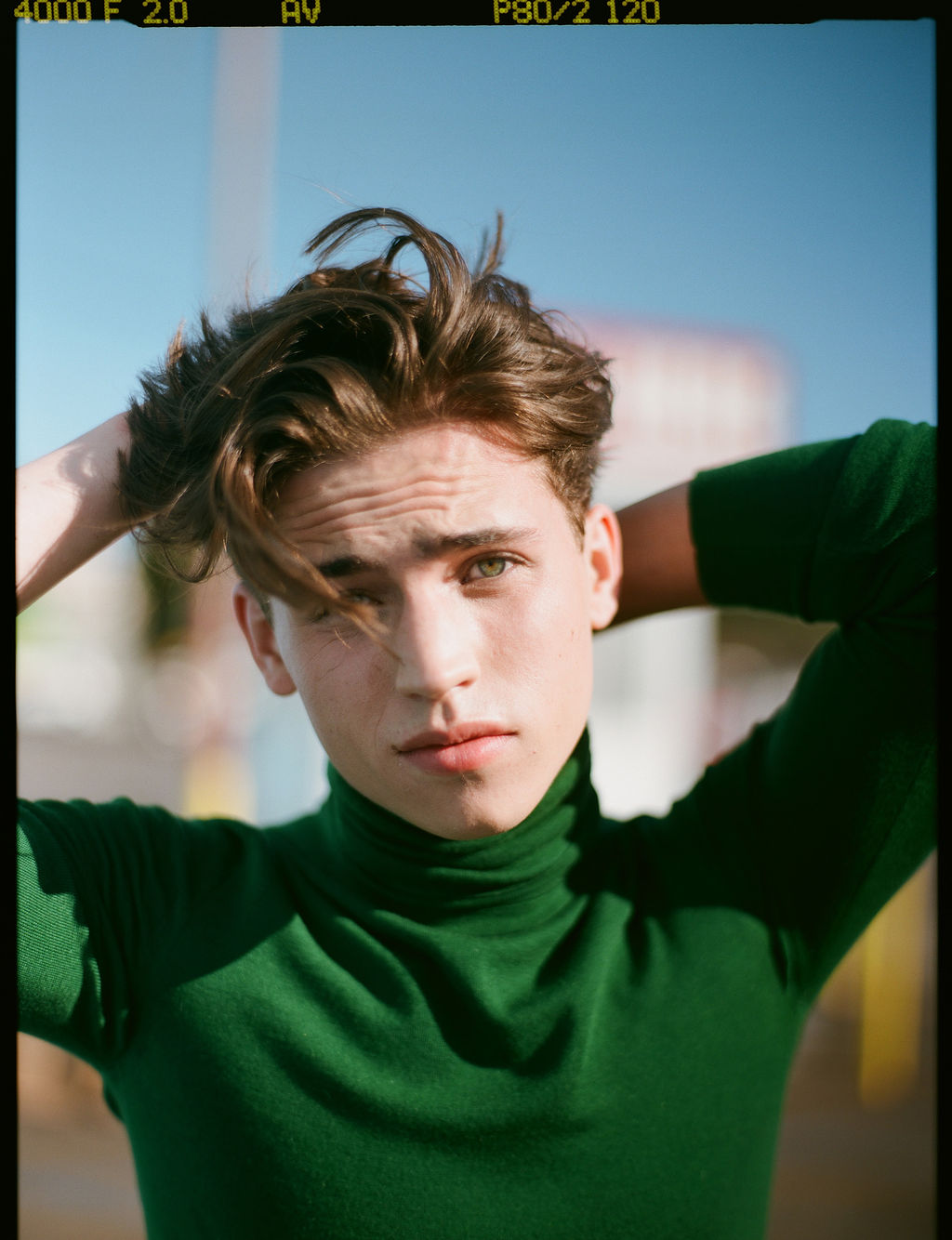
MACCHIO: When Billy [Zabka] and I did the original film, we had weeks and weeks, and literally months on the big tournament fight that’s the climax to Karate Kid. Any time Billy and I have had little scuffles, we end up bruised. Our arms were bruised up. We realized it was a ballet when we did those fight scenes back in Karate Kid. We rehearsed it every day for weeks. Now we’re here we’re pulling scenes up sometimes the day before or on the day of. People are talking so much about the fight scenes, and how awesome they are on Cobra Kai. It just pumps you up to keep it going. The night before a fight scene versus the night before a romantic scene, which one makes you the most nervous?
BUCHANAN: The romantic scenes are what cause me the most anxiety. You could talk to Mary [Mouser] about this because she and I are such good friends. When we had our first kiss scene in season two, they were asking us, “Are you ready?” My heart was pounding, I was shaking. It just feels weird to go to that place, because we’re such good friends.
MACCHIO: There is a self-conscious element. It’s awkward. That scene came out beautiful though. Jen Celotta directed that. You shadowed her in season three, so is directing something you see yourself doing down the line?
BUCHANAN: I’ve actually started to reach out to a couple of book publishers to see if I can get the rights to some books, because I’d like to start creating my own stuff. I’ve been writing a short film as well, during quarantine. I’ve also been writing a series with a friend, so I’m definitely trying to broaden everything and really get things in motion, just so I have more avenues.
MACCHIO: That’s the beauty of storytelling, whether you’re taking an entity or property that exists, or whether you’re creating it from the ground floor, you’re creating life. Having something like Cobra Kai and the success of the show, and with what’s happening now on Netflix, you get more ears and eyeballs. So it’s good to strike when that iron is hot, but it’s great what you’re doing at your age, to just absorb. That’s what I did when I did The Outsiders and some of these films with great directors I got to work with early on. I was that kid that was hanging around the camera and asking questions and taking it in. That was my film school. I get asked this question all the time: Is there a favorite scene from the first two seasons? It’s okay if I’m not in any of them.
BUCHANAN: Something that stands out for me because it was a surreal moment, was when I was at the LaRusso auto dealership and you showed me how to wax-on-wax-off for the first time.
MACCHIO: Right.
BUCHANAN: I was like, “I don’t know how to do this.” And you actually said,” I’ll show you how to do the wax-on-wax-off thing.” It was an out of body experience.
MACCHIO: I loved that whole opening. It was sort of like a truncated version of Miyagi teaching LaRusso, we now truncate that to a montage of LaRusso teaching Robby Keene. It’s equally as poignant, I think for both of us, from two different perspectives, which is in essence what Cobra Kai does so well. It’s about looking at something from a different angle. For me, it was nostalgic and bittersweet because it reminded me of my director John Avildsen and all those people that are no longer with us. But handing off this legacy to the next generation, those have been really important and personal things for me. With the Netflix stuff, what’s happened in the last couple of weeks, is it beyond expectations? I’m curious to know how this second rebirth, since the initial YouTube rebirth two years ago—what it’s like being now on this bigge global platform, and what are you feeling?
BUCHANAN: I mean that’s the thing. With the Netflix release, it’s just much bigger than what I thought it was going to be. Ever since we shot the first season, we knew we had something really good on our hands. We had a lot of fun doing it, we knew it was good writing, we had great action. The story was there. I didn’t expect the reaction we got for the first two seasons. Now to see it jump to Netflix and have an even bigger response beyond what I ever expected has been really incredible. It’s been really cool to see so many more people getting into it and loving the show. It’s been a humbling experience.

